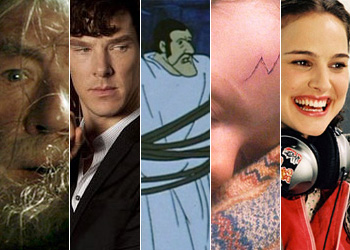
A trope is defined by Merriam-Webster online as
- A word or expression used in a figurative sense
- A common or overused theme or device
- A phrase or verse added as an embellishment or interpolation to the sung parts of the Mass in the Middle Ages
You were probably hoping I meant definition number three. But I’m not that good. So, let’s use the second definition, and explore some of the common overused devises of genre fiction…
First, let me say that this is not a criticism, it’s a celebration. Nothing makes genre fiction more satisfying that packing it full of absurd tropes. The creative minds behind the best genre productions — from Stephen King and Agatha Christie to Joss Whedon and George Lucas — take downright goofy tropes and work them into fiction in a way that seems original, clever, and well executed. So check out this list I came up with.
The Wise Mentor Who Dies in the First Act
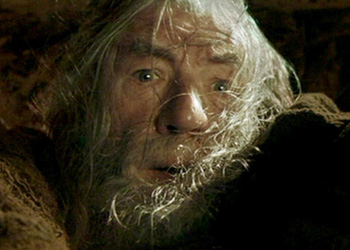
Common Genre: Fantasy
Notable Examples: the King Arthur Myth, The Lord of the Rings, Star Wars, Buffy the Vampire Slayer (the movie)
Any story regarding a chosen person who must go on a quest (of self discovery or an actual physical journey, but most commonly both) faces a problem: if the chosen one were already prepared for the quest, the story would be short and boring. If he’s not prepared for the quest, you have to create a character who will get him (or her) ready. But if that character is powerful enough to teach our chosen one what he needs to do, then why doesn’t he just save the day himself? The solution is to kill him off at the end of the first act.
The epitome of this character is Merlin, who taught Arthur about being kingly, how to use his magic sword and, of course, how to totally underestimate and misjudge women. Morgana freezes Merlin in a magic cave, leaving Arthur to (not) solve Camelot’s problems on his own. The same pattern repeats with other classic mentors, from Obi-Wan Kenobi to Rocky’s Mickey Goldmill. Awesome.
Gay Subtext
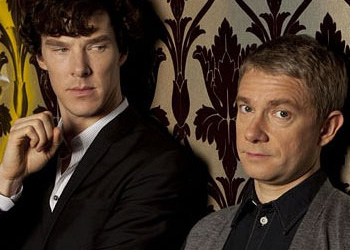
Common Genre: Superhero, Western, Fantasy
Notable Examples: Batman and Robin (DC Comics), James West and Artemus Gordon (The Wild Wild West TV series), Xena and Gabrielle (Xena: Warrior Princess), Ace and Gary (“The Ambiguously Gay Duo”)
Sometimes you need a little sexual tension in your escapist fantasy, just for that extra push over the cliff. On the other hand, your target audience (and the need to satisfy formula-for-success obsessed executives) might require that both your heroes be of the same sex. So how can a creative genius break his characters out of the commercial closet?
Gay subtext, that’s how. Back in the day, even if you explicitly wanted your characters to be gay, you couldn’t get away with it. So you had to keep it on the down-low. It was all about innuendo and ambiguity, which sometimes led to asinine dialogue, but usually enriched the characterization. And the fact that even the creators or actors didn’t understand, for example, that “kemosabe” probably meant more than “friend,” makes it even better.
Of course, now we know there’s nothing wrong with that. But the trope is so ingrained in genre storytelling that an aspiring young script-writer still might want to keep it on the down low, at least for the first few seasons. If a series lasts long enough, the characters will eventually reference it themselves. That scene from Supernatural, for example, with the superfan writing Wincest slash fiction, is brilliant. It’s disturbing and gross and I’m going to take a shower when I finish writing this. But it’s brilliant.
The Scooby-Doo Ending
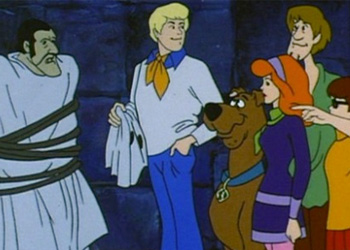
Common Genre: Mystery
Notable Examples: Scooby-Doo, Columbo, Murder, She Wrote, Agatha Christie’s work
This trope is so ridiculous, and yet so appealing, it took a trippy children’s cartoon to bring put it out in the open so the rest of us, and not just the writers, could see what kind of awesome absurdity is out there.
Here’s the conundrum: What do you do when you’ve built an engrossing mystery, being expertly solved by a beloved sleuth, peppered it with intriguing clues, but ran out of time and you have to wrap it all up in less than a minute? You get the bad guy into a room full of people, present your evidence, and get him to confess. And if you can get him to curse the meddling kids, that’s even better.
The Fate of an Entire Society Dependant on Avoiding or Fulfilling a Prophecy
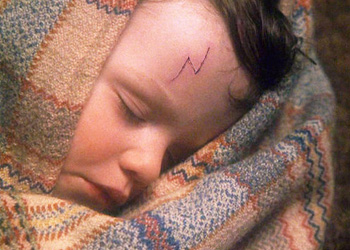
Common Genre: Fantasy, Science Fiction, Horror
Notable Examples: Star Wars, Dune, Harry Potter
This is a natural story-builder. You’ve got foreshadowing, a ready made ending, and something for the characters to rage against, all built into one plot technique. Of course, if the prophecy is true, there’s no point in fighting it. But if there is a point in fighting it, why does the prophecy even exist?
Don’t try to answer that question, because either way it’s completely ludicrous. Ludicrous, that is, in a way that we can’t get enough of. What would a futuristic space opera be without a prophecy to get the characters moving? And how else would you keep readers interested in a story about sand and worms? A prophecy, that’s how.
The Manic Pixie Dream Girl
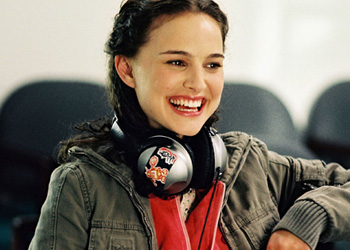
Common Genre: Romantic Comedy, Coming of Age
Notable Examples: What’s Up, Doc?, Almost Famous, The New Girl
If you haven’t read about Nathan Rabin’s concept of the Manic Pixie Dream Girl, then you had better head over to the AV Club and educate yourself before you lose all geek credibility. But since you are a Fandomaniac, you of course know all about it and I can skip ahead.
The MPDG represents the ultimate escapist drivel, but like the rest of the tropes on this list, we can’t get enough of it. She’s a woman who has mastered the art of getting the most out of life, full of life and quirkiness, and she dedicates all that amazingness to the happiness of the brooding protagonist instead of, say, becoming a clown. She also doesn’t evolve at all and has no redeeming traits whatsoever other than those mentioned above. In real life, of course, you would poke your eyes out and pour hot lead in your ears to get away from such a one-dimensional woman. But in fiction? She’s the most fascinating woman since Lilith.


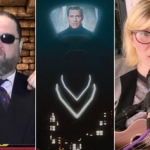

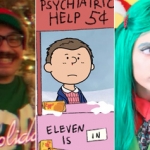
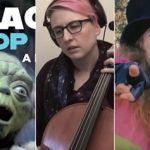
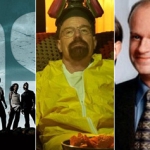
This is a good list but I disagree with the statement that these are all desirable tropes in fiction. For example, the problem with gay subtext is that it usually ends up as queer-baiting–meaning it is there to please slash fans but gives LGBT+ people no real representation. Because the writers are talking about gay stuff they think they are being so progressive, but it is only there to either make a joke or to be “hot” without actually committing to exploring a queer identity. This can be very frustrating to queer people and can even be dangerous because it objectifies queer people and basically makes it all about straight people–the characters are straight people “acting gay” and it is done for the benefit of a (mostly) straight audience. And it also implies that close relationships between two people of the same gender must be of a sexual nature. It is basically a narrative equivalent of “NO HOMO!”